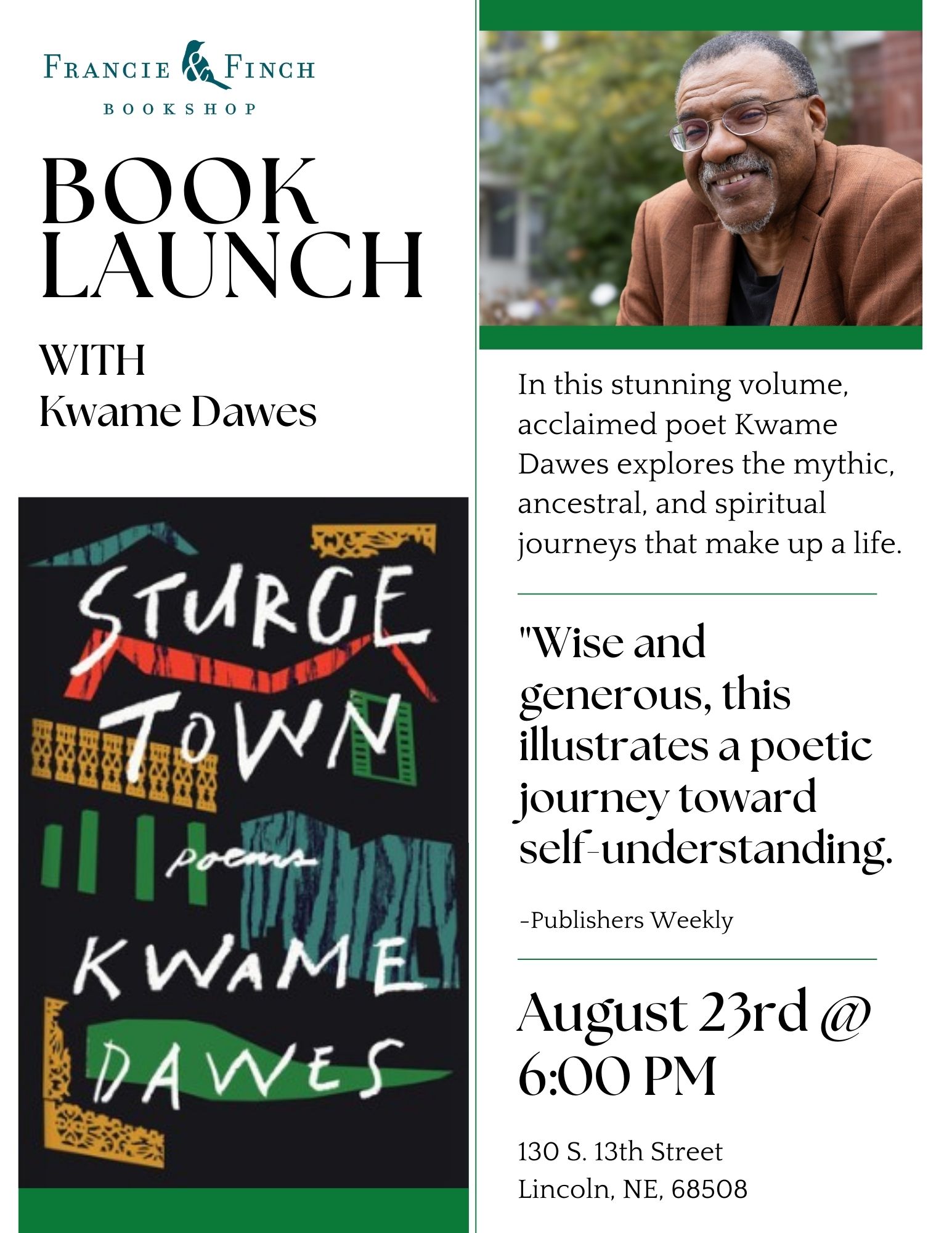
- This event has passed.
Book Launch – Kwame Dawes – Sturge Town
August 23, 2024 @ 6:00 pm - 7:30 pm

Francie and Finch Bookshop is pleased to announce the date for a special book launch for esteemed author Kwame Dawes! On August 23rd at 6:00 PM, Kwame will be reading from his new book of poetry Sturge Town, hailed by Herman Sutter of the Library Journal as “filled with tenderness, curiosity, and compassion for what has been and what might be”.
We can’t wait to see you there!
Pre-Order Your Copy HERE
About the Book:
In this stunning volume, acclaimed poet Kwame Dawes explores the mythic, ancestral, and spiritual journeys that make up a life.
The site of the ruined ancestral home of Kwame Dawes’s family, in one of the earliest post-slavery free villages in Jamaica, Sturge Town is at once a place of myth and, for Dawes, a metaphor of the journeying that has taken him from Ghana, through Jamaica, and to the United States. The poet ranges through time, pursued by a keen sense of mortality, and engages in an intimate dialogue with the reader—serious, confessional, alarmed, and sometimes teasing. Metrically careful and sonorous, these poems engage in a personal dialogue with the reader, serious, confessional, alarmed and sometimes teasing. They create highly visualized spaces, observed, remembered, imagined, the scenes of both outward and inner journeys. Whether finding beauty in the quotidian or taking astonishing imaginative leaps, these poems speak movingly of self-reflection, family crises, loss, transcendence, the shattering realities of political engagement, and an unremitting investment in the vivid indeterminacy of poetry.
From “Recall”:
Oh, pipe me back to my familiar earth,
for it is slipping slowly from me.
About the Author:
Kwame Dawes is the author of numerous books of poetry and other books of fiction, criticism, and essays. Dawes is a George W. Holmes University Professor of English at the University of Nebraska–Lincoln and Glenna Luschei Editor of Prairie Schooner. He is a chancellor emeritus for the Academy of American Poets and a fellow of the Royal Society of Literature. Dawes is the winner of the Windham-Campbell Award for Poetry and was a finalist for the 2022 Neustadt International Prize for Literature. In 2022, Kwame Dawes was awarded the Order of Distinction Commander class by the Government of Jamaica. He lives in Lincoln, Nebraska.
Praise for Sturge Town:
“Like one of his heroes, Bob Marley, Dawes changes not just the way readers look at the world but the lens through which they see reality. His is a transcendent vision, filled with tenderness, curiosity, and compassion for what has been and what might be.” – Herman Sutter, Library Journal
“Wise and generous, this illustrates a poetic journey toward self-understanding.” – Publishers Weekly
